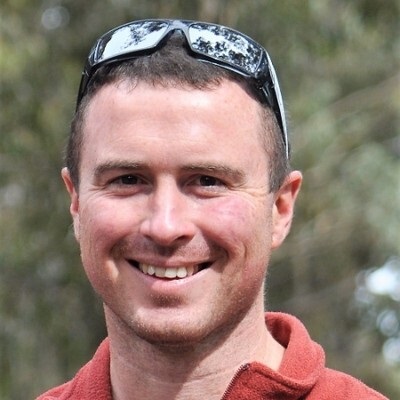From humble beginnings packing orders in the Who Gives A Crap warehouse to climbing the ranks and becoming sustainability director, Bernie Wiley has helped lead the company’s climate and sustainability related initiatives with a strong background in logistics.
Retailbiz (RB) recently spoke with Who Gives A Crap sustainability director, Bernie Wiley (BW), to hear more about his career, how he champions sustainability and his advice to other organisations.
RB: Tell me about your journey at Who Gives A Crap.
BW: I began my career in warehousing, distribution, and logistics for consumer goods businesses selling to major retailers. From there, I moved into product sourcing and development, where I eventually became a supply chain operations manager for an online retail and consumer goods company. This created a great foundation for my move to Who Gives A Crap.
I started my journey with Who Gives A Crap in logistics management and planning, where I helped to evolve our global network of warehouses and transport partners. Having played an integral role in Who Gives A Crap’s global retail expansion, I was then able to transition to the director of sustainability role.
Some highlights during my time at Who Gives A Crap so far include implementing the EV fleet across Australia, as well as my involvement in our collaboration with Australian logistics partners to execute our Crap Solar Project.
This project saw the installation of 77KW of solar panelling at our Melbourne warehouse. We worked with our warehouse partner to get approval from the property management and landlord to make this happen.
RB: What does your role encompass as sustainability director?
BW: When I started at Who Gives A Crap, working in supply chain and logistics management, my core focus was to increase efficiency and reduce both costs and waste. These concerns are also top priorities for driving sustainability improvements. Addressing these issues through a sustainability lens is pivotal to problem-solving.
Within most consumer goods companies, supply chains have a significant impact on emissions. It’s key to have a thorough understanding of how this field works to drive long-term, sustainable solutions which, in turn, drive greater value for the business. Through my time in logistics, I refined my skill set, which inevitably was fundamental in setting me up for my role in the sustainability team.
As sustainability director, I am now able to focus more of my time on developing strategies to support the business in achieving our sustainability goals. Within my role, I focus on the protection of forests, minimising our impacts on water and land-based ecosystems, and eliminating carbon emissions.

RB: How do you champion sustainability and social equality across the organisation?
BW: Social equality is the foundation of our business. Our mission is to help give everyone in the world access to clean water and sanitation, which is why we donate 50% of our profits to help build toilets and improve sanitation in the developing world.
Social equality is something that is intrinsically interconnected with sustainability. To effectively address one, you need to ensure you’re considering the other. For example, untreated human waste is a huge contributor to methane gas emissions, one of the most potent greenhouse gases.
We’re committed to constantly evolving towards greater environmental sustainability in the full lifecycle of our products. Every day, over one million trees are cut down to create traditional toilet paper. By producing toilet paper products that are made from 100% recycled paper, or bamboo, we have tried to make it simpler for eco-curious consumers to do good.
RB: Why do you think sustainability has become such an important consideration in the retail industry?
BW: Alongside sustainability being a growing consideration in the retail industry, greenwashing has become a growing discussion point in industry and media. Greenwashing has led to consumers becoming more sceptical of brands’ sustainability and climate actions. This in turn causes consumers to question brands that are putting in the work. This erosion of confidence highlights the need for greater transparency, product testing, and regulatory oversight.
RB: What is your advice to other businesses wanting to advance their sustainability credentials?
BW: Advancing sustainability is a process of change management. It takes time and commitment and no one person can do it by themselves. Businesses need to be prepared to invest in actions that drive real, long-term sustainable change.
Sustainability is often seen as a cost to businesses, but it is not always the case. Starting with operations can uncover areas of waste that can drive both sustainability and cost improvements. Fortunately for businesses in Australia, many sustainable solutions are already available such as installed solar, grid-purchased renewable energy, commercial composting, and electric vehicles.
My main piece of advice would be to identify, measure and report on the most material sustainability issues. These could include such as energy usage, operational emissions from physical locations, or supply chain emissions. Once these issues are identified, businesses should be continually working to improve upon these results. To drive success, it is essential to implement short, mid-and long-term goals.
RB: What can we expect to see from Who Gives A Crap over the next 12 months?
BW: It will always be a priority of ours to ensure we are taking every measure available to continuously lower our carbon footprint. This is why over the next 12 months we will be tackling our biggest sources of emissions – production and logistics. Both of these require us to work with our supply chain partners to ensure we make an impact.
The key projects that we are working on are utilising renewable energy throughout the supply chain and increasing the amount of direct-to-consumer orders being delivered by zero-emission vehicles such as EVs.

